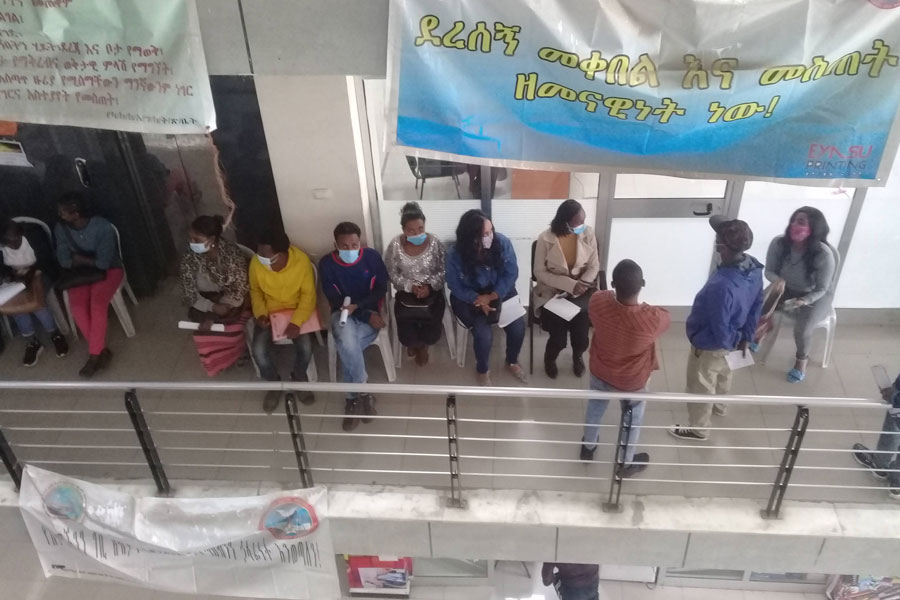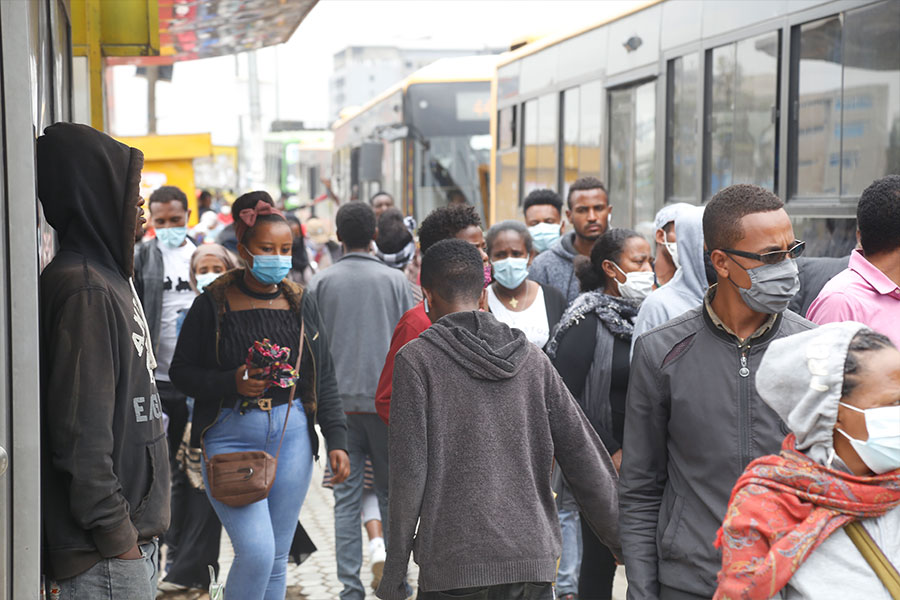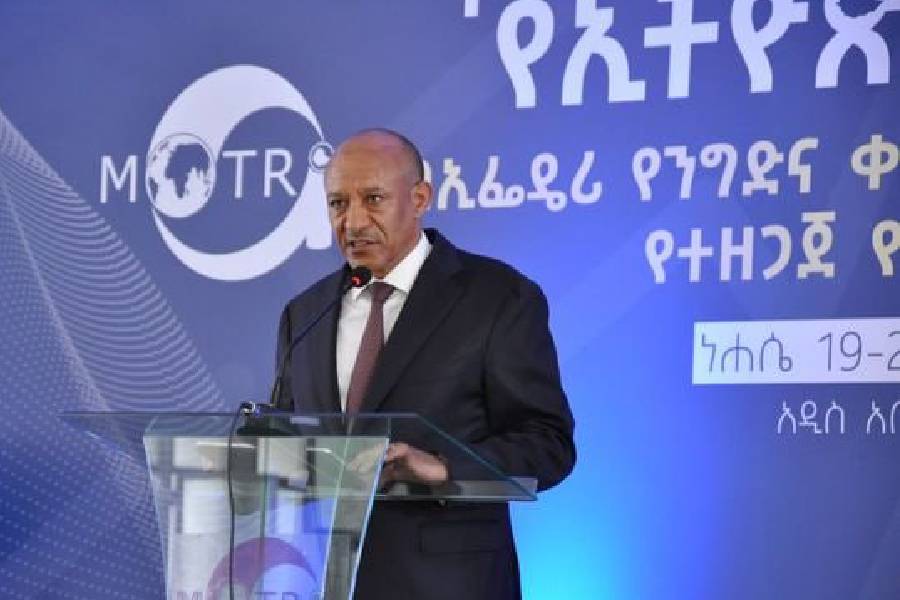
Radar | Aug 04,2024
May 29 , 2021
By Hagos Gebreamlak
Peace and stability in the Tigray Regional State cannot be returned without urgently rehabilitating the economy. The economic evolution of the region makes it necessary that economic rehabilitation programmes must be carried out in tandem with responses to the security and humanitarian crises, writes Hagos Gebreamlak (hagospsir@gmail.com), a former reporter at this publication.
On November 04, 2020, a war broke out between forces of the federal government and those of Tigray Regional State, including between players loyal to either side. Eventually, the Tigray People's Liberation Front (TPLF) and forces loyal to it were ousted from Meqelle, the region’s capital, and the major cities. Despite this, recurrent fighting has continued, in what seems like guerilla warfare, using hit and run strategies and tactics to weaken the ‘invading forces’ and ‘liberate’ territories in the Tigray region.
What all of this has done is unleash a dire crisis, making Tigray ungovernable. The region is overwhelmed by security and humanitarian crises. With civilians losing their lives and being displaced, the situation has dashed the hopes of many that expected the region to return to a semblance of normalcy.
The TPLF-led forces, which are said to be fighting as Tigray Defense Forces, do not seem to have a centralised command system, and are fragmented in terms of command-chain, areas of operation and military organisation. This has aggravated the security and humanitarian crises. While such scattered military units may not anymore be a challenge to the power of those in the federal government or a threat to the territorial integrity of Ethiopia, it nonetheless makes it difficult to restore order and stability in Tigray.
Six months since the conventional war was ended and morphed into a form of an insurgency, the security situation in the region has shown little recovery. Several areas have remained without any essential government services. Only the northern, eastern, and southern regions of the region have seen some improvements. The humanitarian situation is worrying. Almost in all areas except Meqelle, there is no policing service and civil administration could not be re-established. Government institutions have remained mostly closed.
This situation will continue, but for a reason that does not seem to be getting much attention. Peace and stability in Tigray can not be returned without urgently rehabilitating the economy. The security and humanitarian crises should be addressed first and then the economy, many may argue. But this will not work for a region that has been maintained by federal subsidies and a federal army – the Northern Command – that made its base there.
To understand this, one has to go back to the bloody Ethio-Eritrea War, which took place with a pretext of a border conflict. The war created significant frustration within the TPLF camp and led to a split. The late Prime Minister Meles Zenawi, who was the first among equals before the war, subsequently dominated the TPLF leadership.
A no-peace-no-war situation reigned for the following two decades. It also devastated the economy of Tigray as the regional state was suddenly cut off from utilising the Massawa Port in Eritrea. Tigray could not be viable for genuine economic growth and development since it has been forced to look for other distant ports, such as Djibouti and Sudan, which are two to three times farther. The region also remained far from the centre of the Ethiopian political economy, which is Addis Abeba. It became a periphery and economically neglected.
TPLF had understood that Tigray would not be governable and economically sustainable without large federal spending and a vast security apparatus. As it had monopolised the media, security, and financial resources of the country, the regional ruling party put in place a large army in the regional state.
For the past two decades in Tigray, the major investments and development projects were coming from the Endowment Fund for the Rehabilitation of Tigray (EFFORT), which was eventually elevated to a public company by the regional administration. The region, nonetheless, did not receive private investments capable of creating significant employment opportunities and necessary for boosting the region’s export.
Take, for instance, the total credit provided to micro and small enterprises (MSEs) across the country, around 27.4pc of which went to the Tigray region, according to the Federal Urban Job Creation & Food Security Agency. But they created only 4.2pc of the total jobs created by MSEs throughout the country.
Since employment opportunities have been very limited, except by government institutions, migration to different parts of the country and the Middle East has become normalised.
Over the decades, extreme poverty has also remained rampant and unalleviated. More than a quarter of Tigray's residents live under the poverty line, higher than the national average. Close to 30pc of the rural households are included in the Productive Safety Net Programme (PSNP), while only 10.8pc of rural households are at the national level.
Tigray also has the lowest percentage of potable water accessibility in the country, as well as the highest inflation rate compared to the other regions.
Such widespread extreme poverty and large youth unemployment have not been addressed or even significantly reduced. For such a long time, the region could not be competitive and viable for economic development due to the no-peace-no-war situation that forced the region to remain cut off from the Massawa Port.
The TPLF has had a media and narratives monopoly that levied a tight intelligence gathering system in Tigray for the last three decades. It had imposed a heavy top-down power structure. These scenes, together with the socio-economic problems, make the ongoing crises too hard to address.
This is why the ongoing Tigray crises can not be solved without urgent economic rehabilitation. Only healing the economy will normalise the current situation and stabilise the regional state. If economic activities, mostly trade, begin to operate, the youth could be engaged in economic activities and employed. Unemployed youth are always targeted for one cause or another, regardless of how just or unjust it may be.
The efforts made to normalise the situation and stabilise the region would be in vain if they are severed from economic rehabilitation programs. The latter should be aimed at reconstruction, and reconnection to the Massawa port and the commercial and industrial base of the country, Addis Abeba and the other major cities. The two tasks must be carried out in tandem.
PUBLISHED ON
May 29,2021 [ VOL
22 , NO
1100]


Radar | Aug 04,2024

Fortune News | Dec 19,2021

Addis Fortune | Feb 14,2022

Agenda | Jul 03,2021

News Analysis | Aug 07,2021

Radar | Jun 03,2023

Commentaries | Jul 13,2024

Covid-19 | Mar 28,2020

Editorial | Jan 09,2021

Fortune News | Sep 09,2024

Photo Gallery | 177688 Views | May 06,2019

Photo Gallery | 167902 Views | Apr 26,2019

Photo Gallery | 158582 Views | Oct 06,2021

My Opinion | 136995 Views | Aug 14,2021
Commentaries | Oct 25,2025

Dec 22 , 2024 . By TIZITA SHEWAFERAW
Charged with transforming colossal state-owned enterprises into modern and competitiv...

Aug 18 , 2024 . By AKSAH ITALO
Although predictable Yonas Zerihun's job in the ride-hailing service is not immune to...

Jul 28 , 2024 . By TIZITA SHEWAFERAW
Unhabitual, perhaps too many, Samuel Gebreyohannes, 38, used to occasionally enjoy a couple of beers at breakfast. However, he recently swit...

Jul 13 , 2024 . By AKSAH ITALO
Investors who rely on tractors, trucks, and field vehicles for commuting, transporting commodities, and f...

Oct 25 , 2025
The regulatory machinery is on overdrive. In only two years, no fewer than 35 new pro...

Oct 18 , 2025
The political establishment, notably the ruling party and its top brass, has become p...

Oct 11 , 2025
Ladislas Farago, a roving Associated Press (AP) correspondent, arrived in Ethiopia in...

Oct 4 , 2025
Eyob Tekalegn (PhD) had been in the Governor's chair for only weeks when, on Septembe...

Oct 25 , 2025 . By YITBAREK GETACHEW
Officials of the Addis Abeba's Education Bureau have embarked on an ambitious experim...

Oct 26 , 2025 . By YITBAREK GETACHEW
The federal government is making a landmark shift in its investment incentive regime...

Oct 27 , 2025
The National Bank of Ethiopia (NBE) is preparing to issue a directive that will funda...

Oct 26 , 2025 . By SURAFEL MULUGETA
A community of booksellers shadowing the Ethiopian National Theatre has been jolted b...